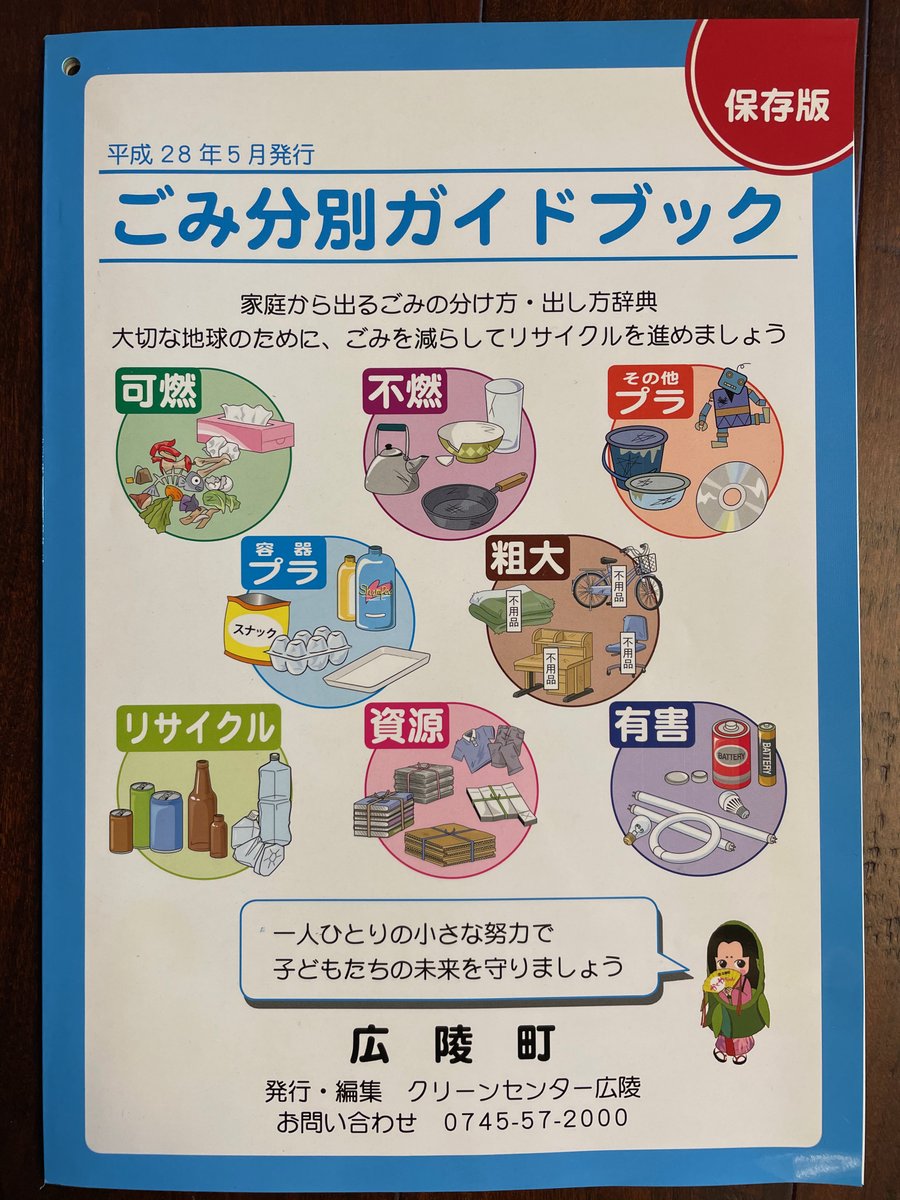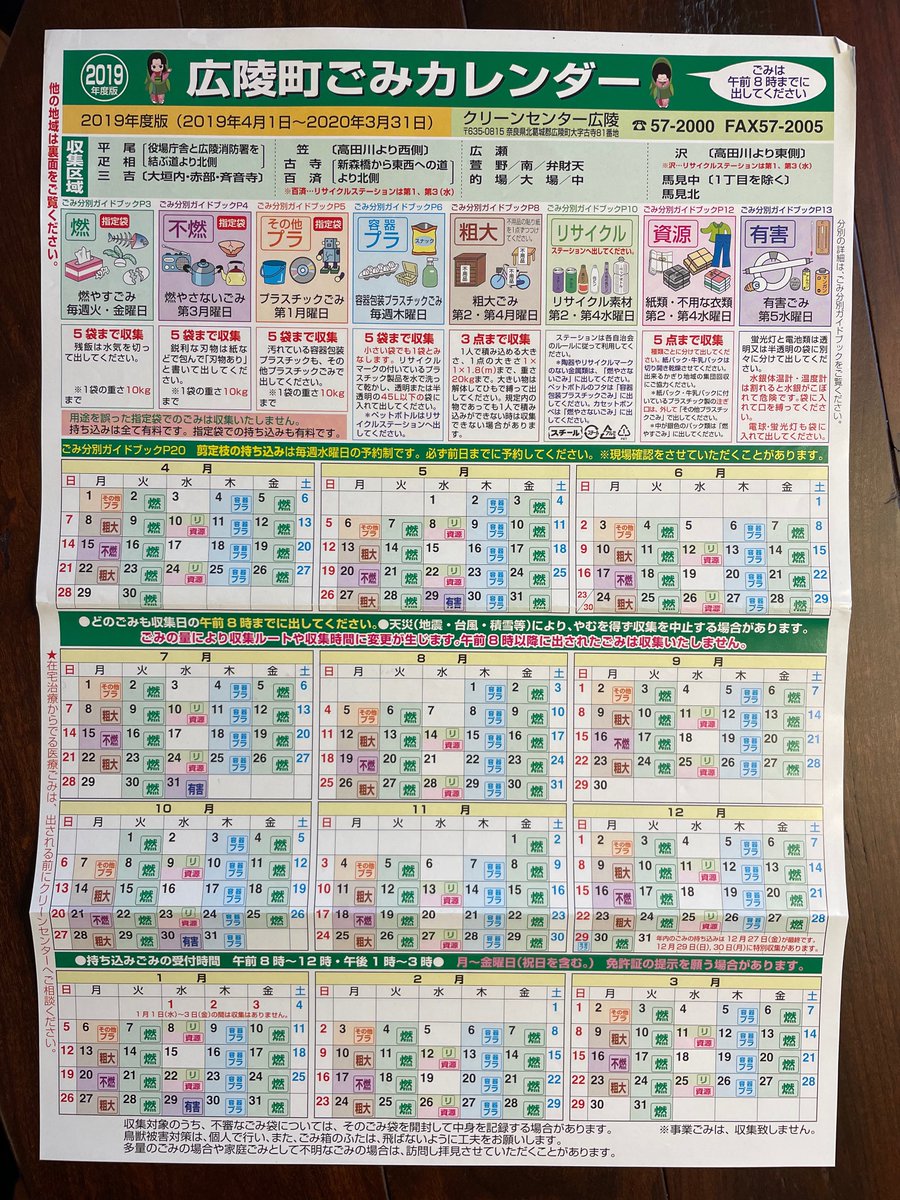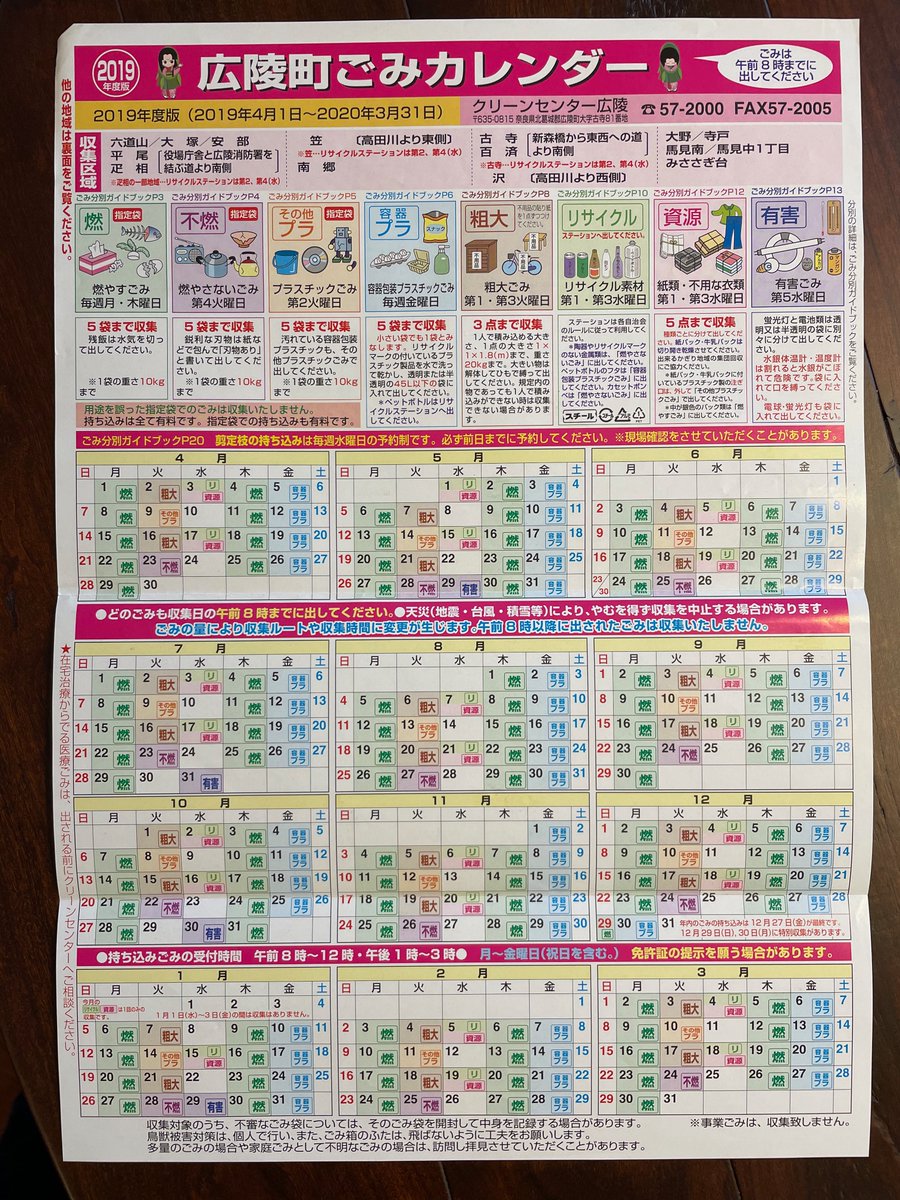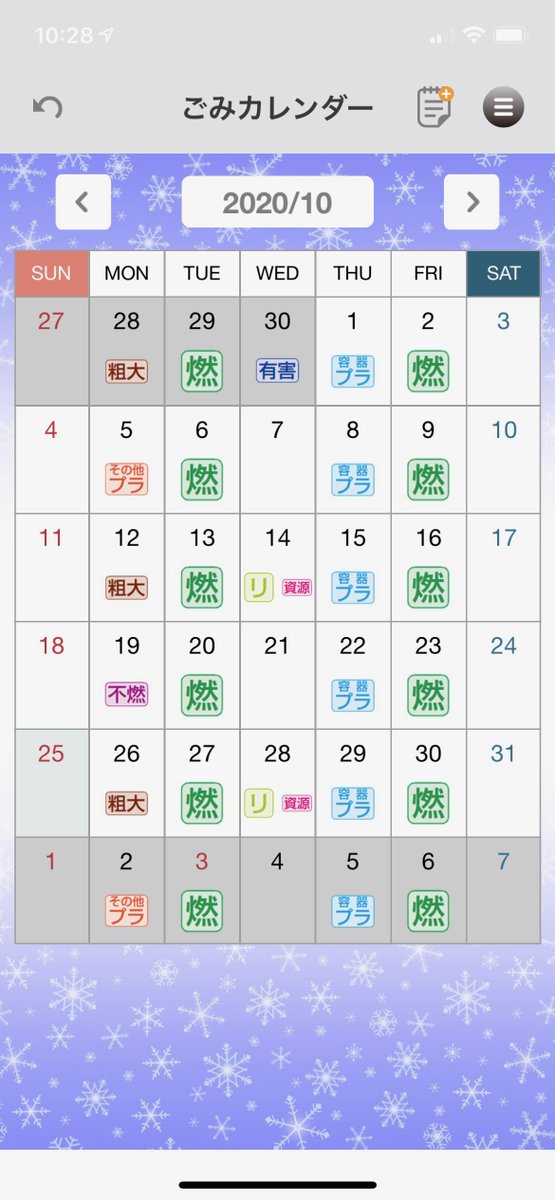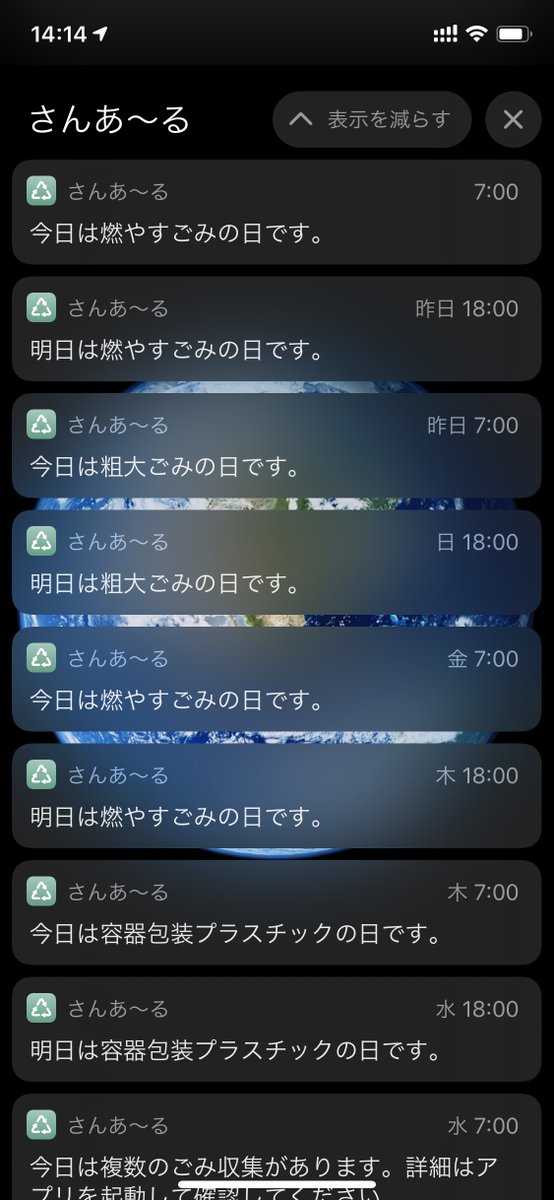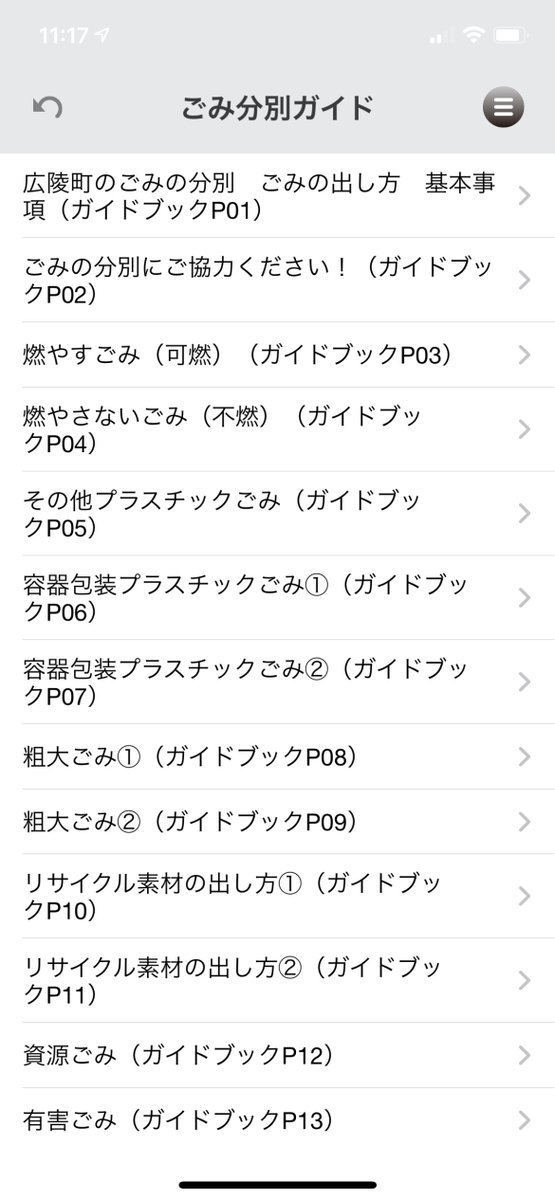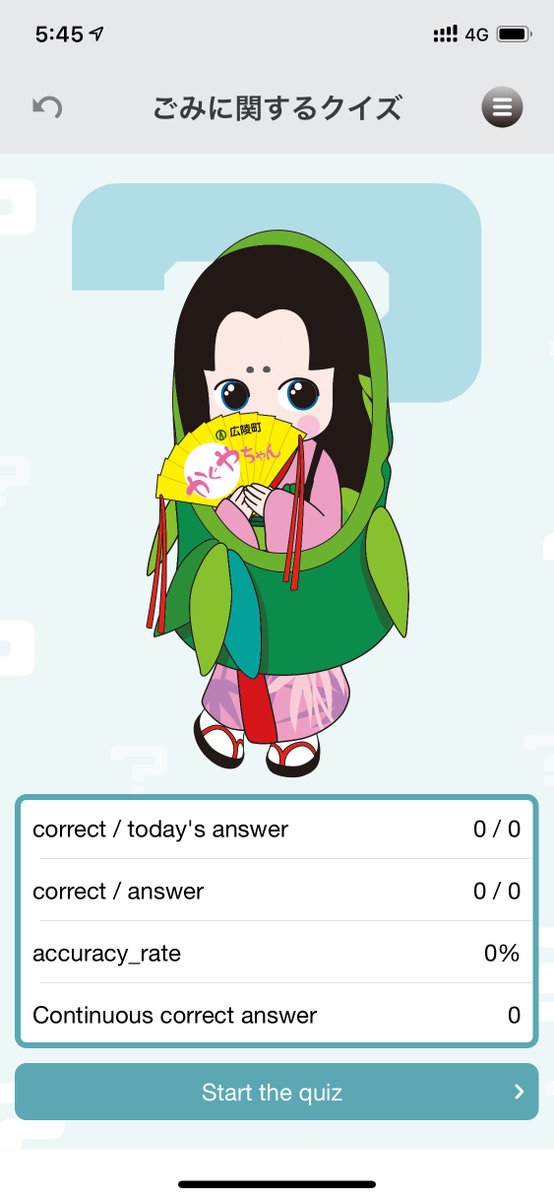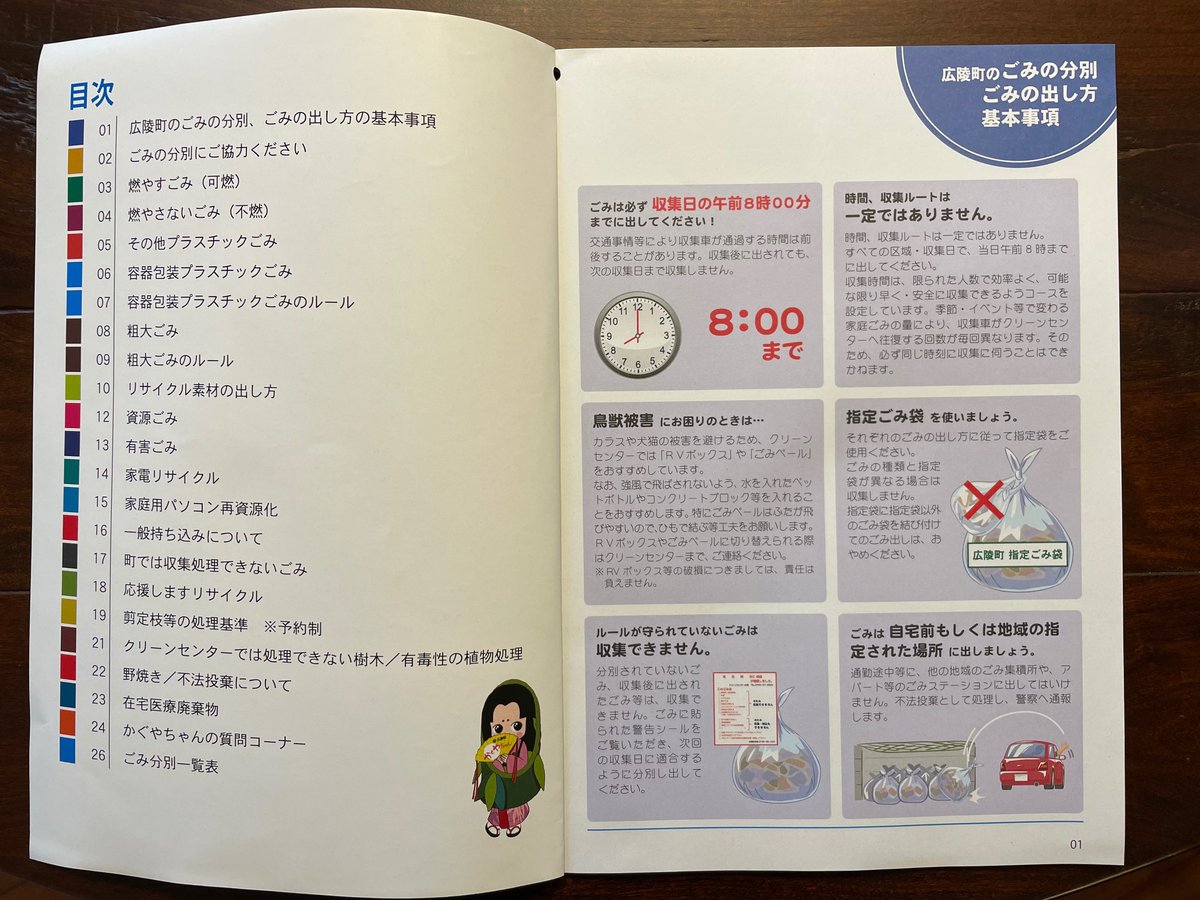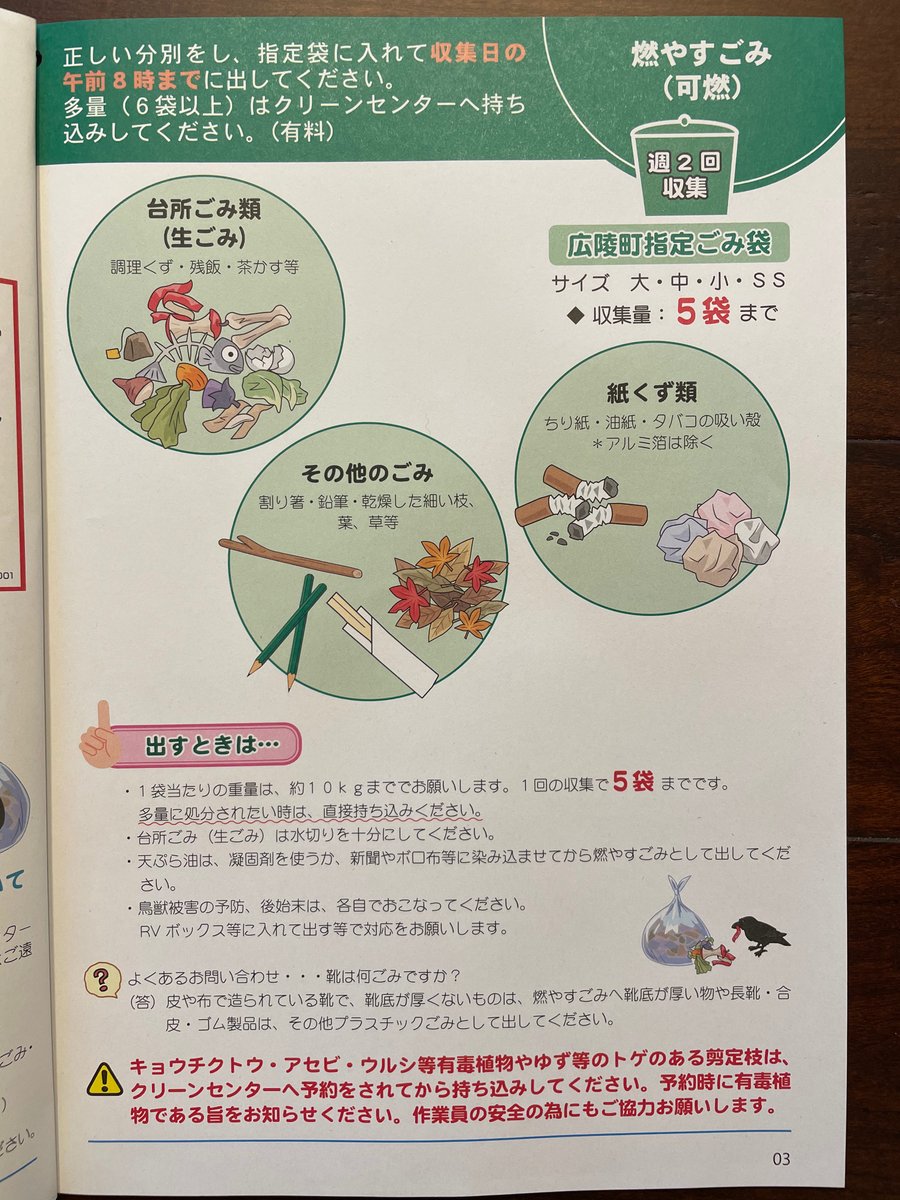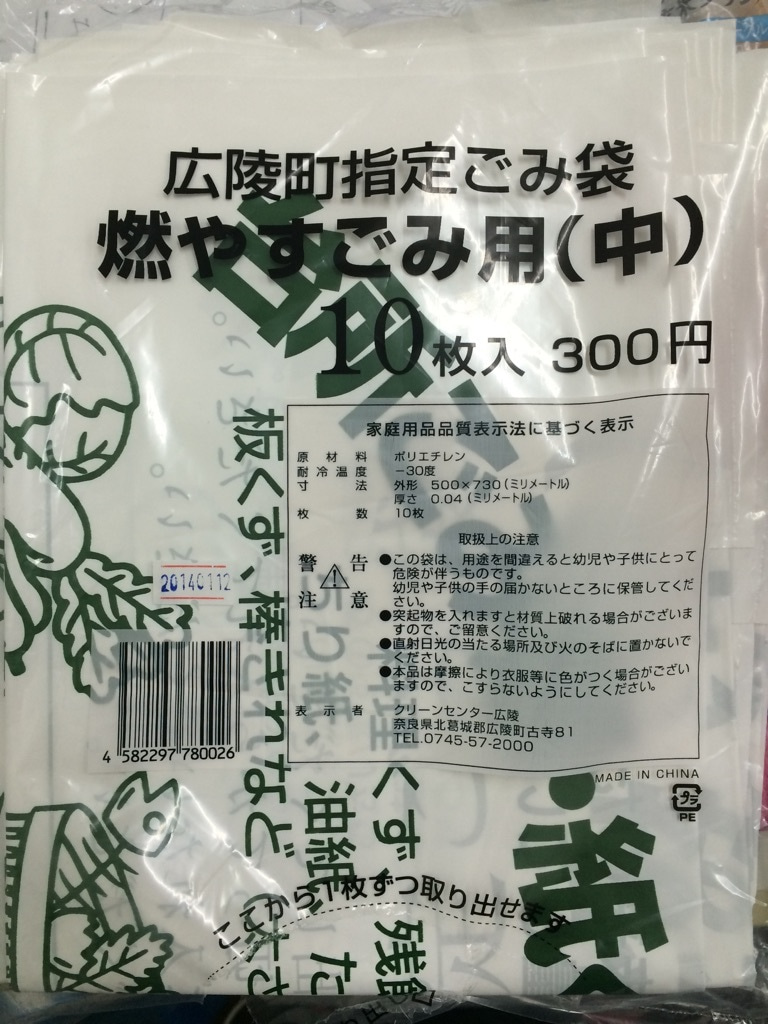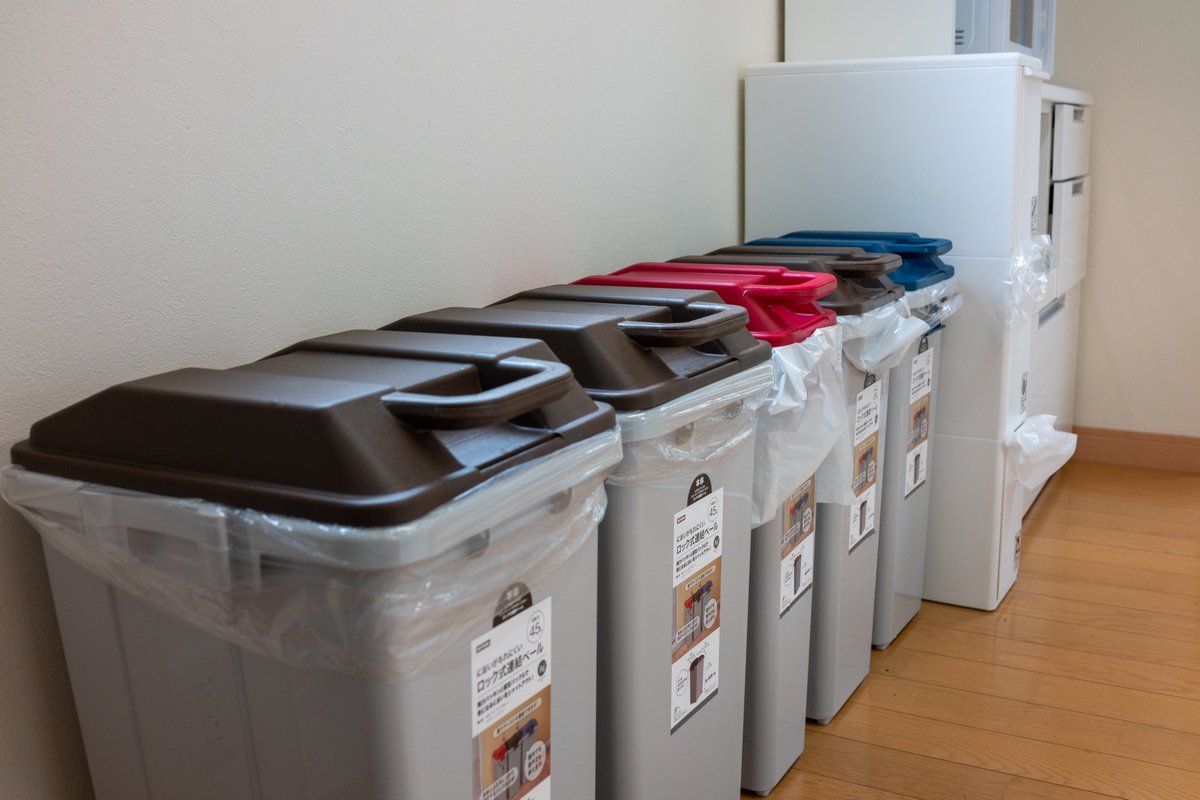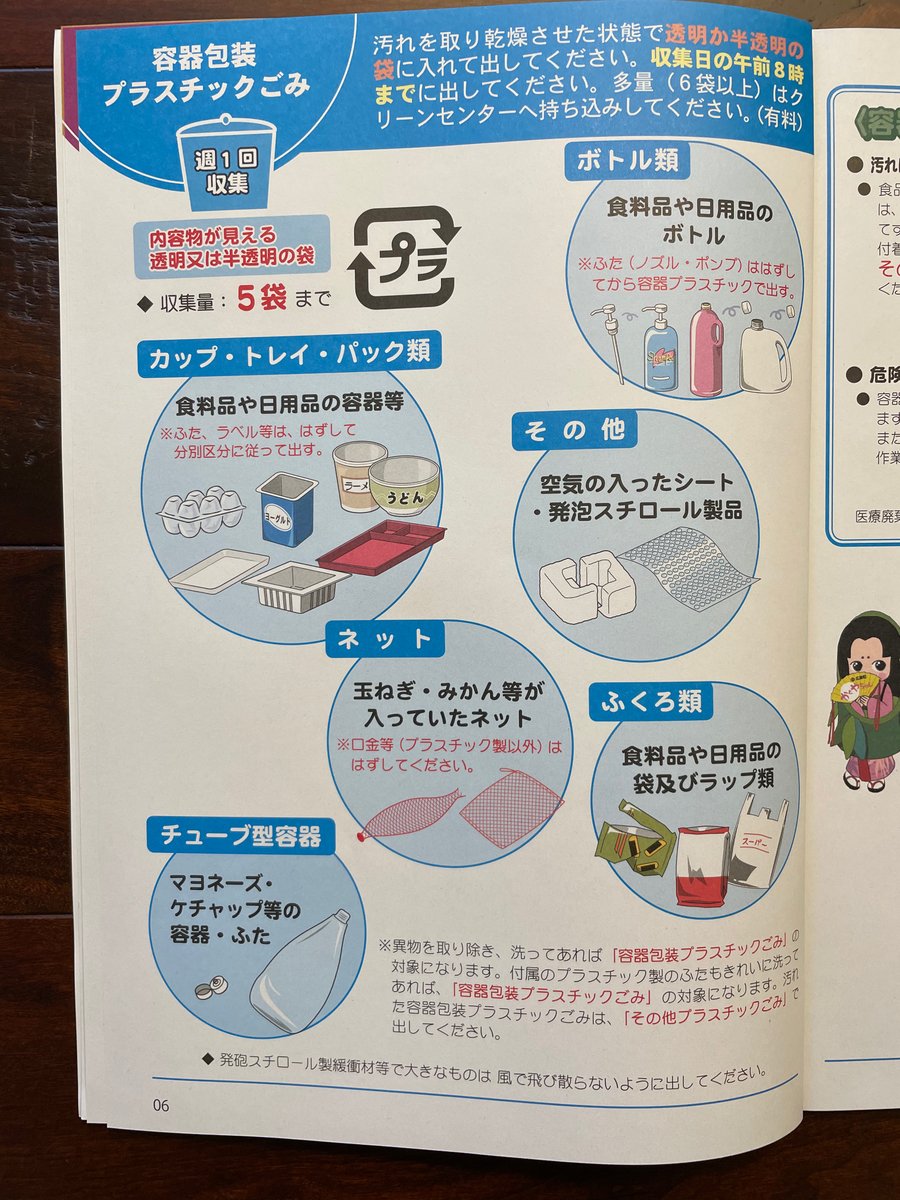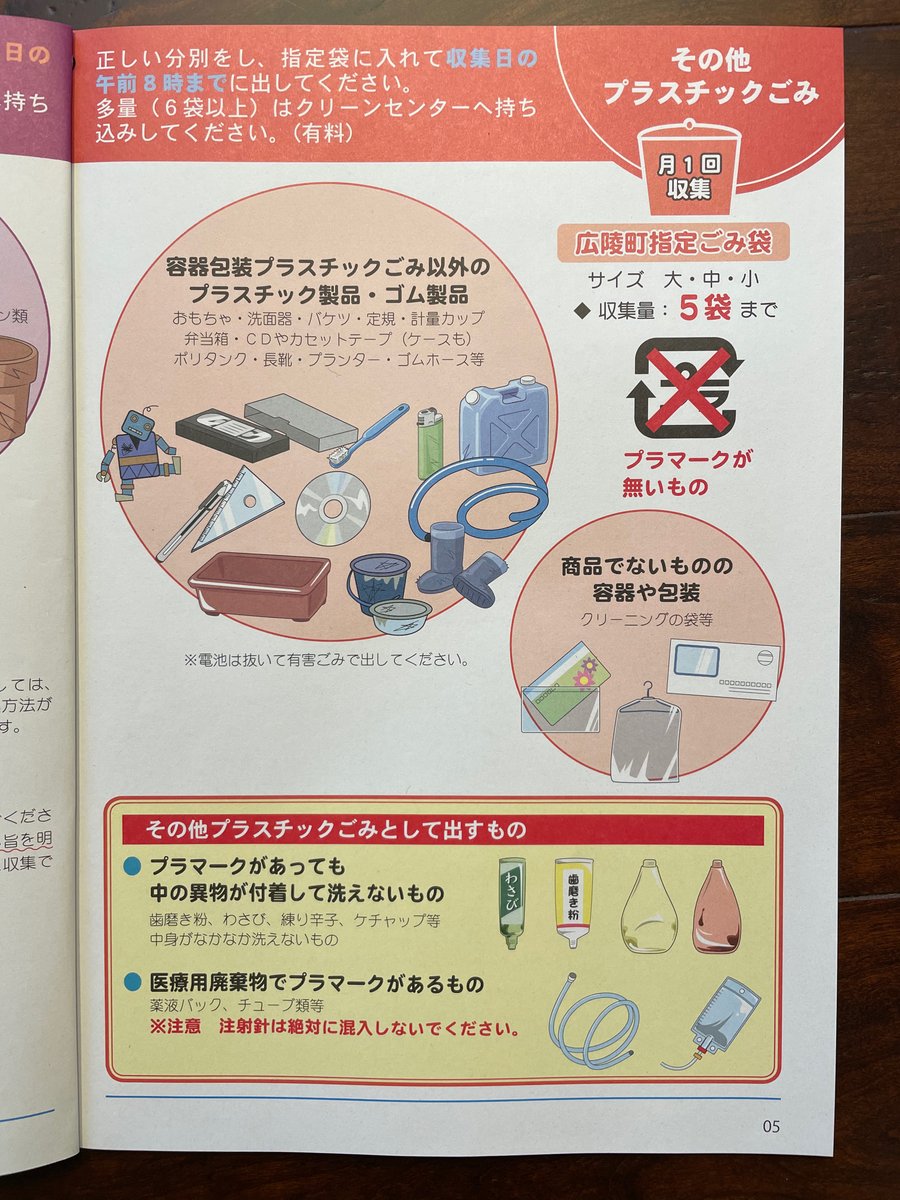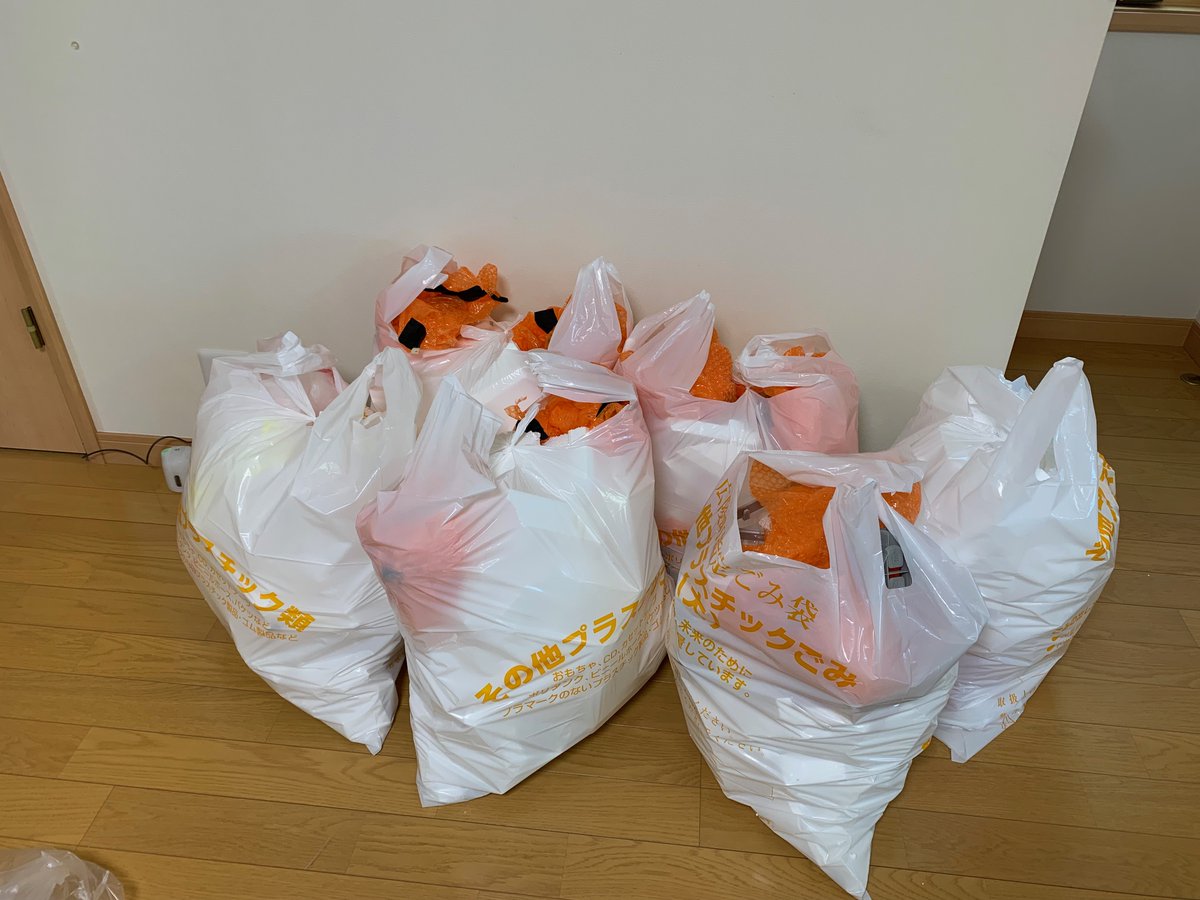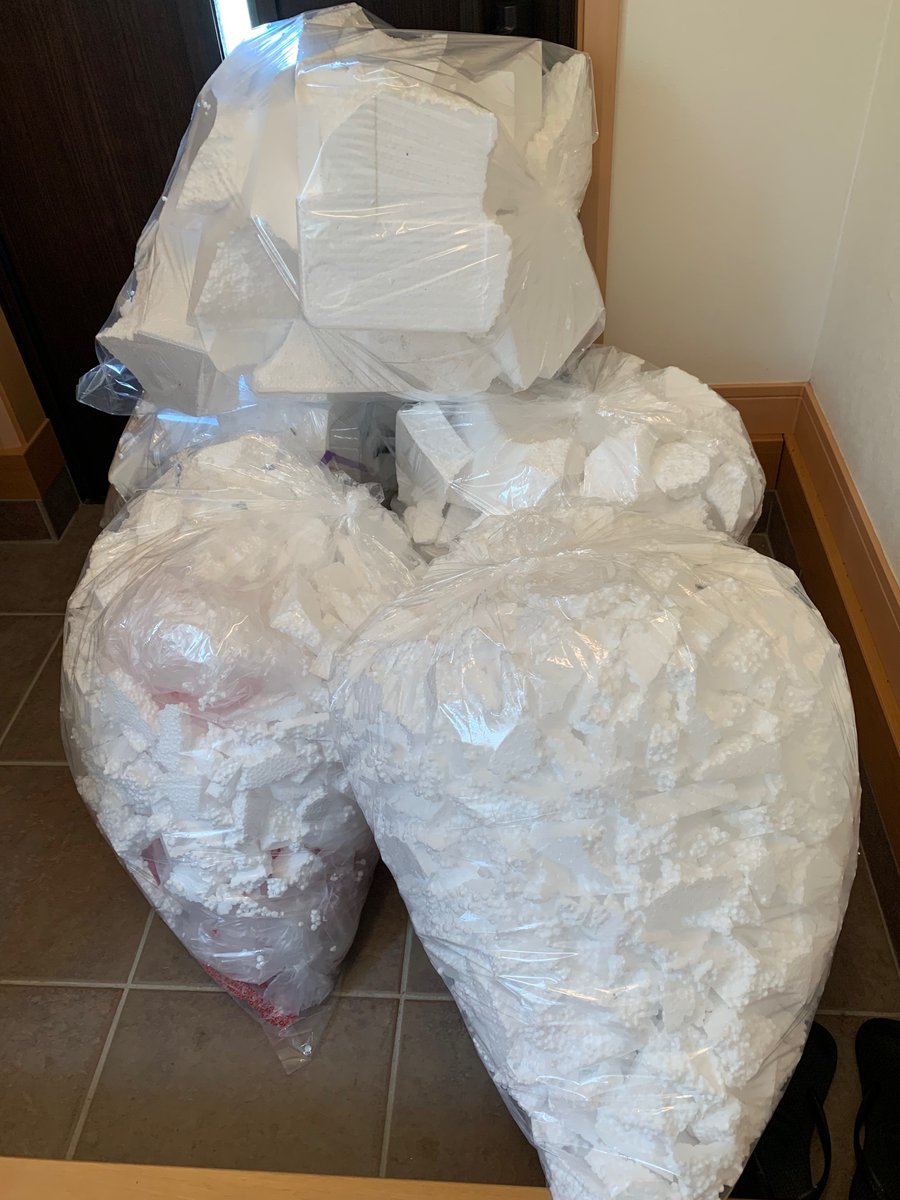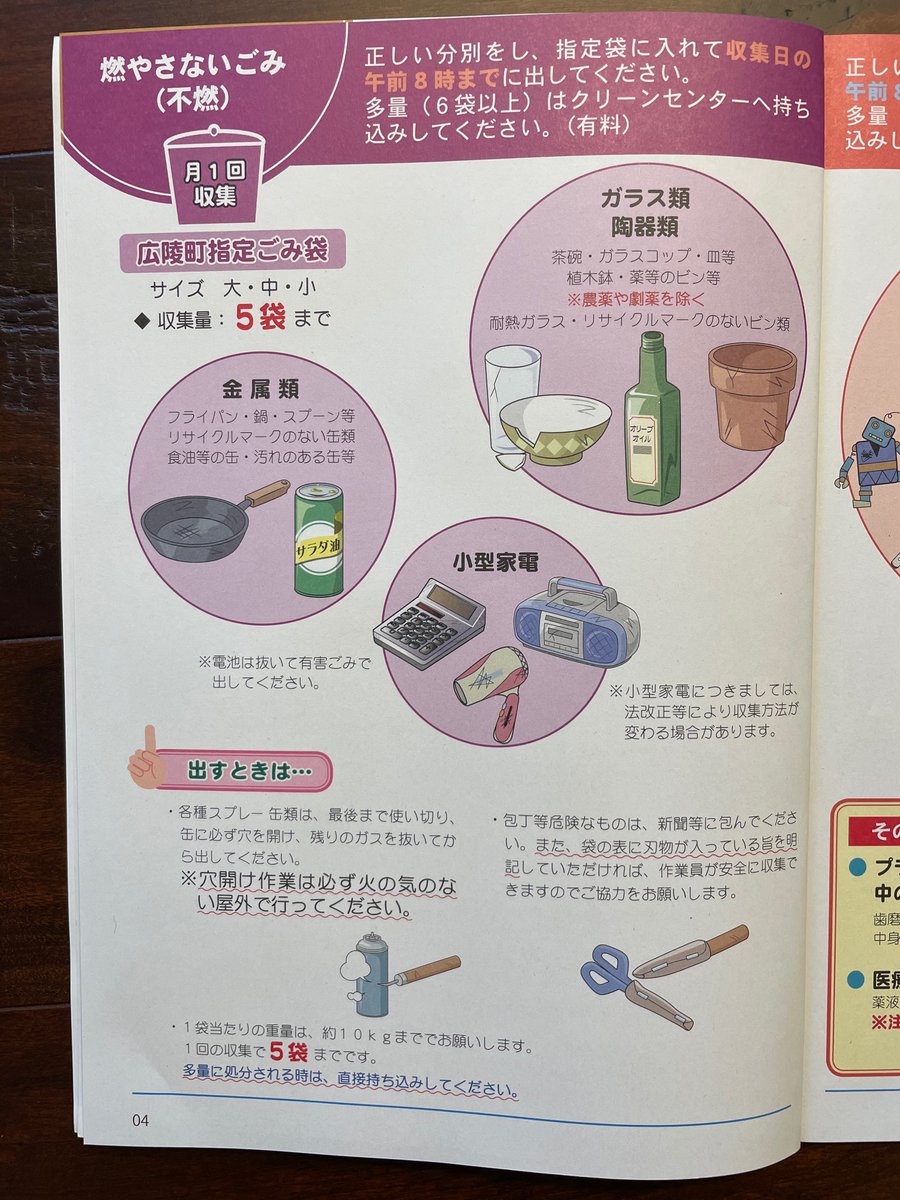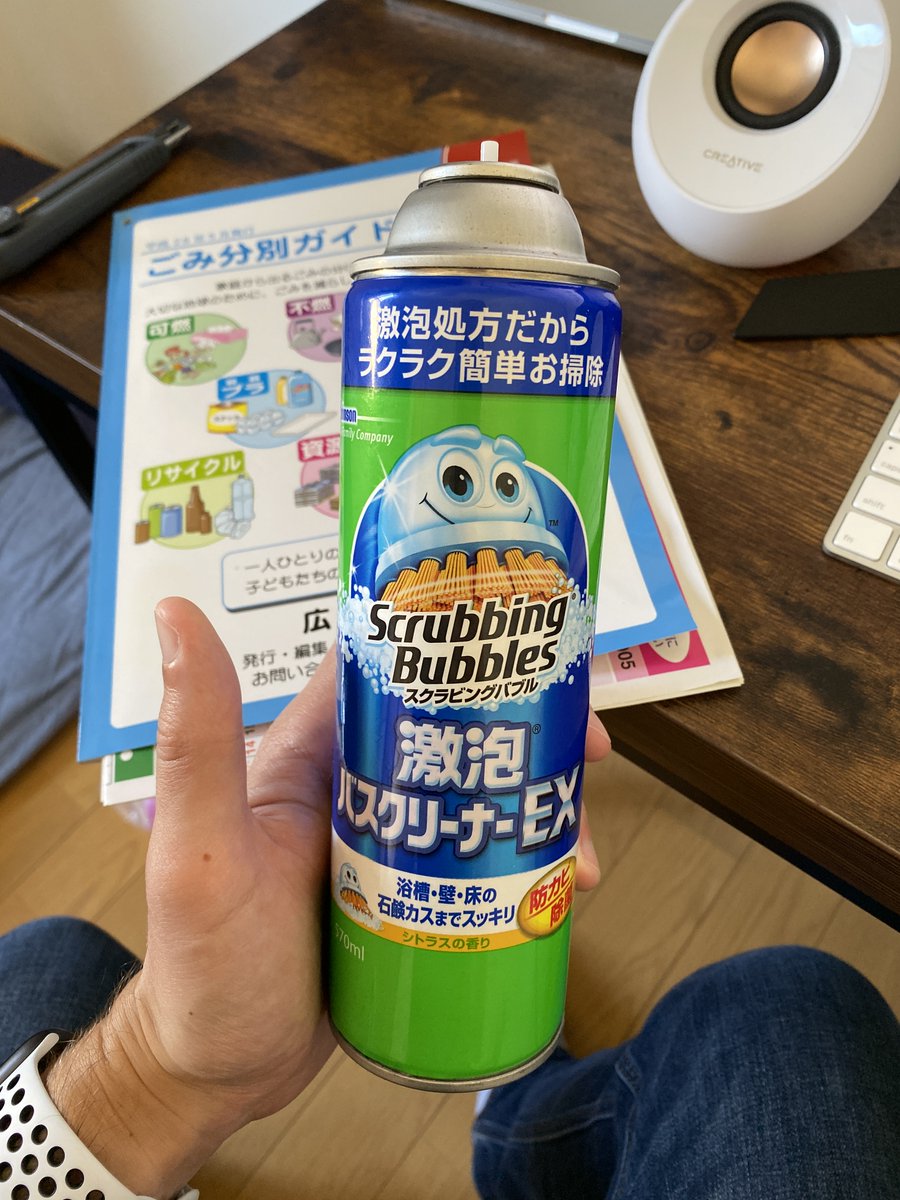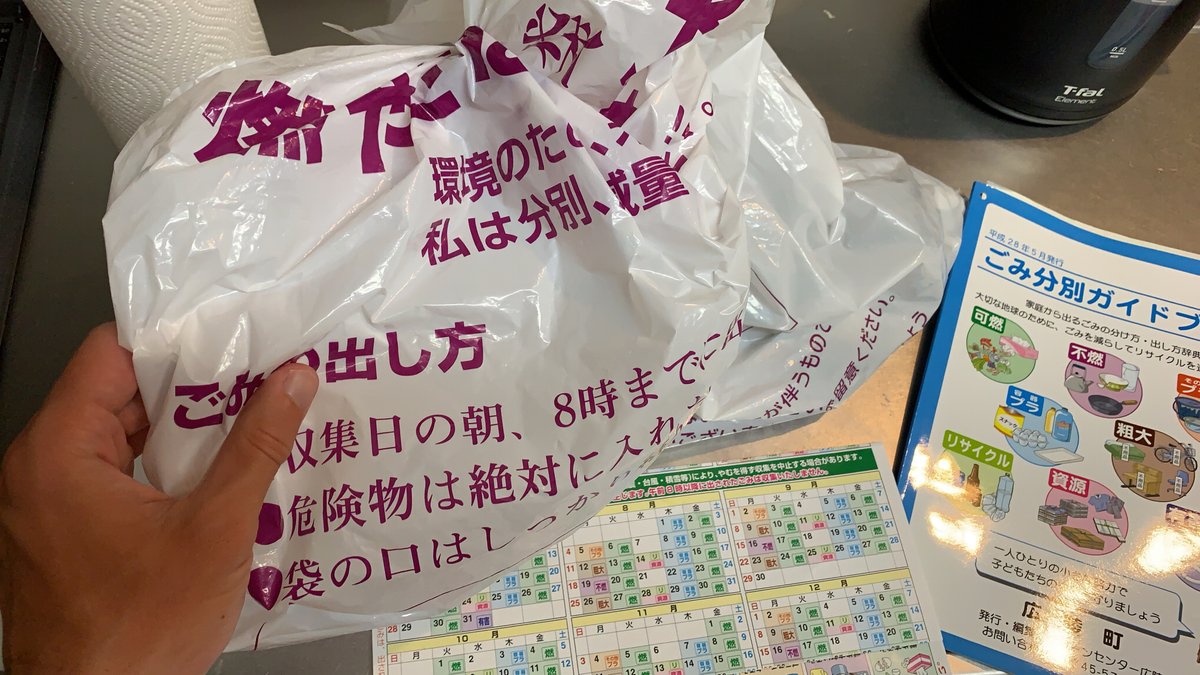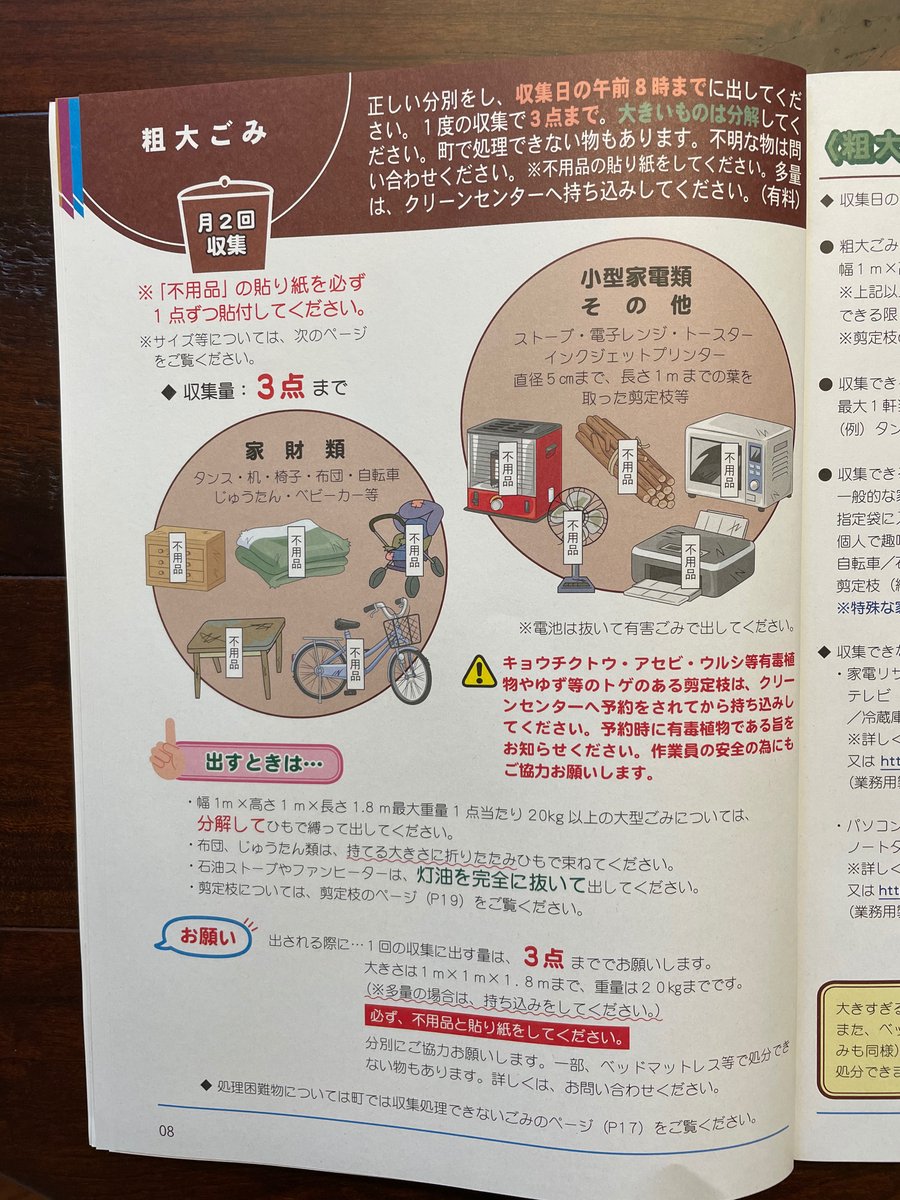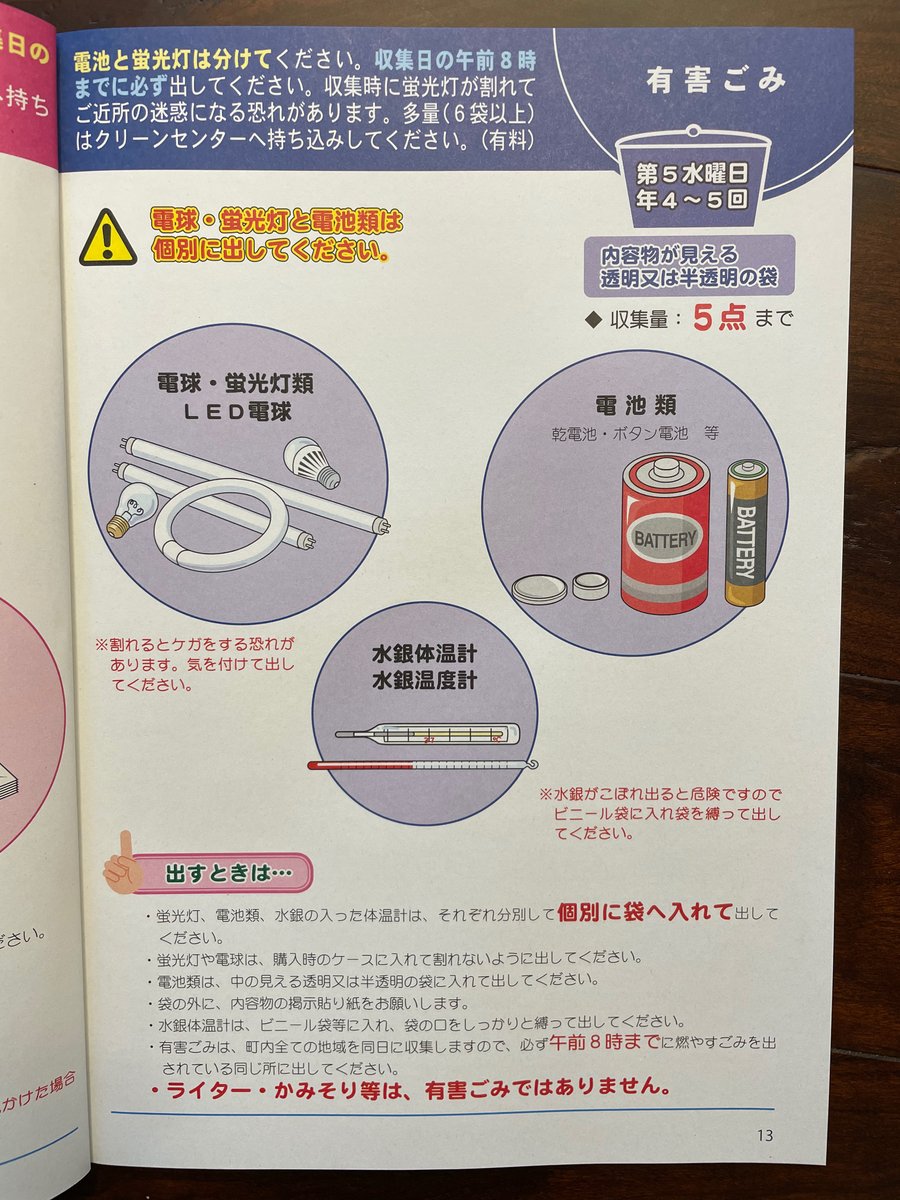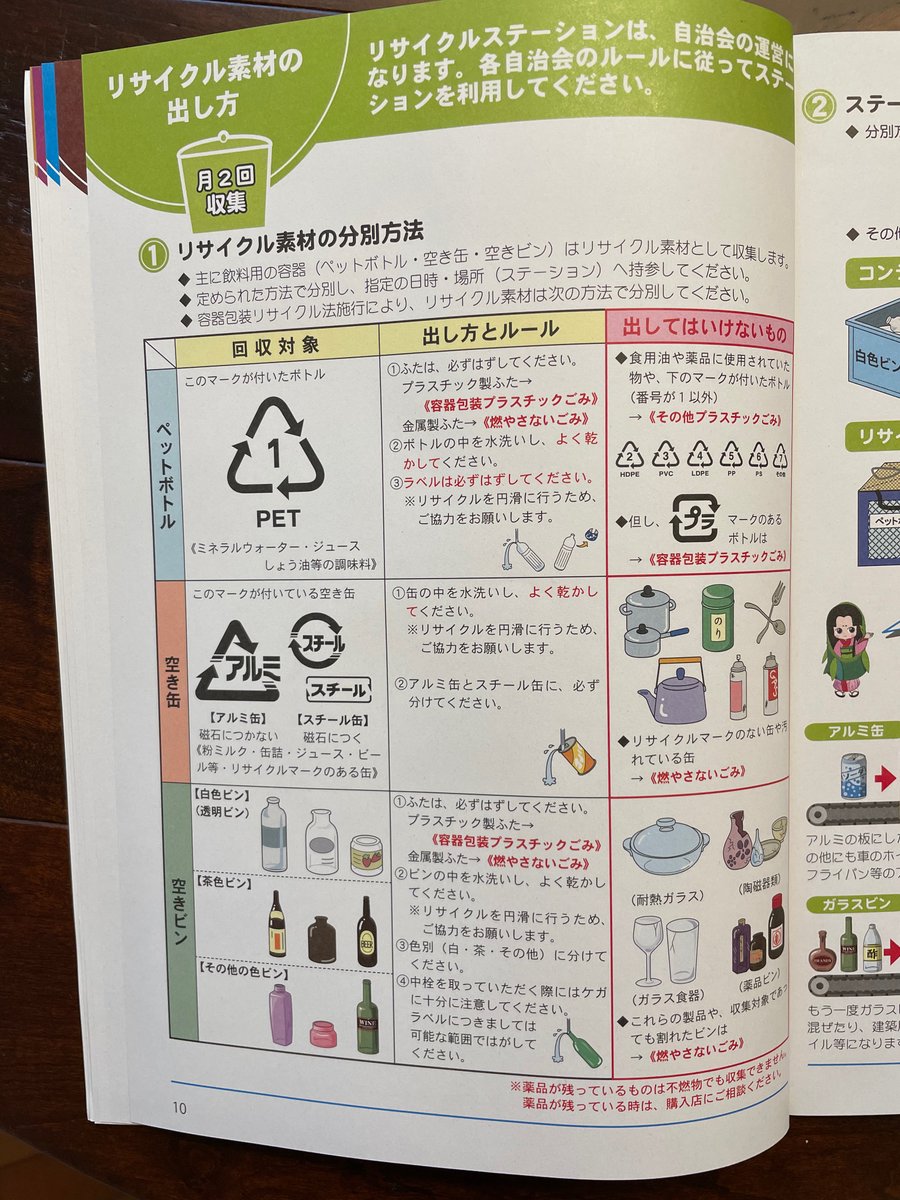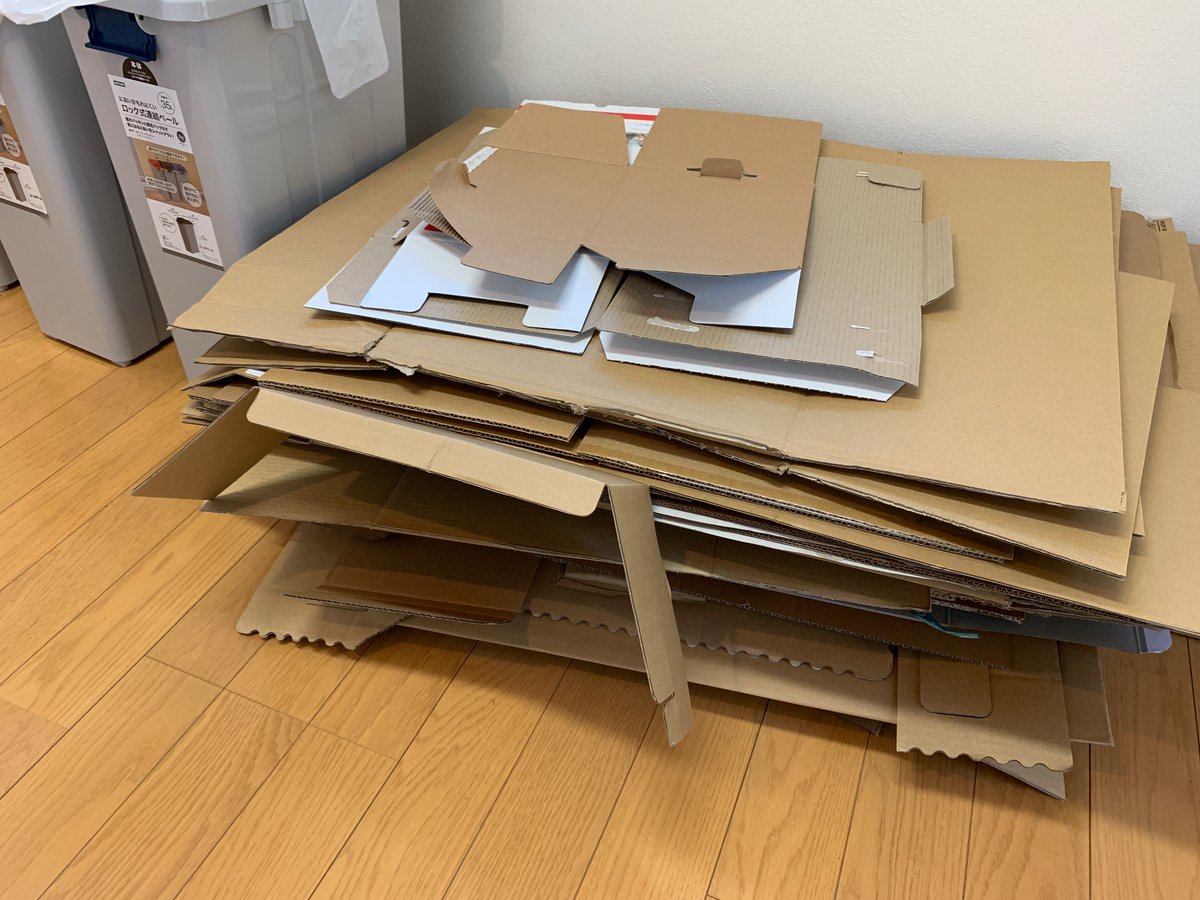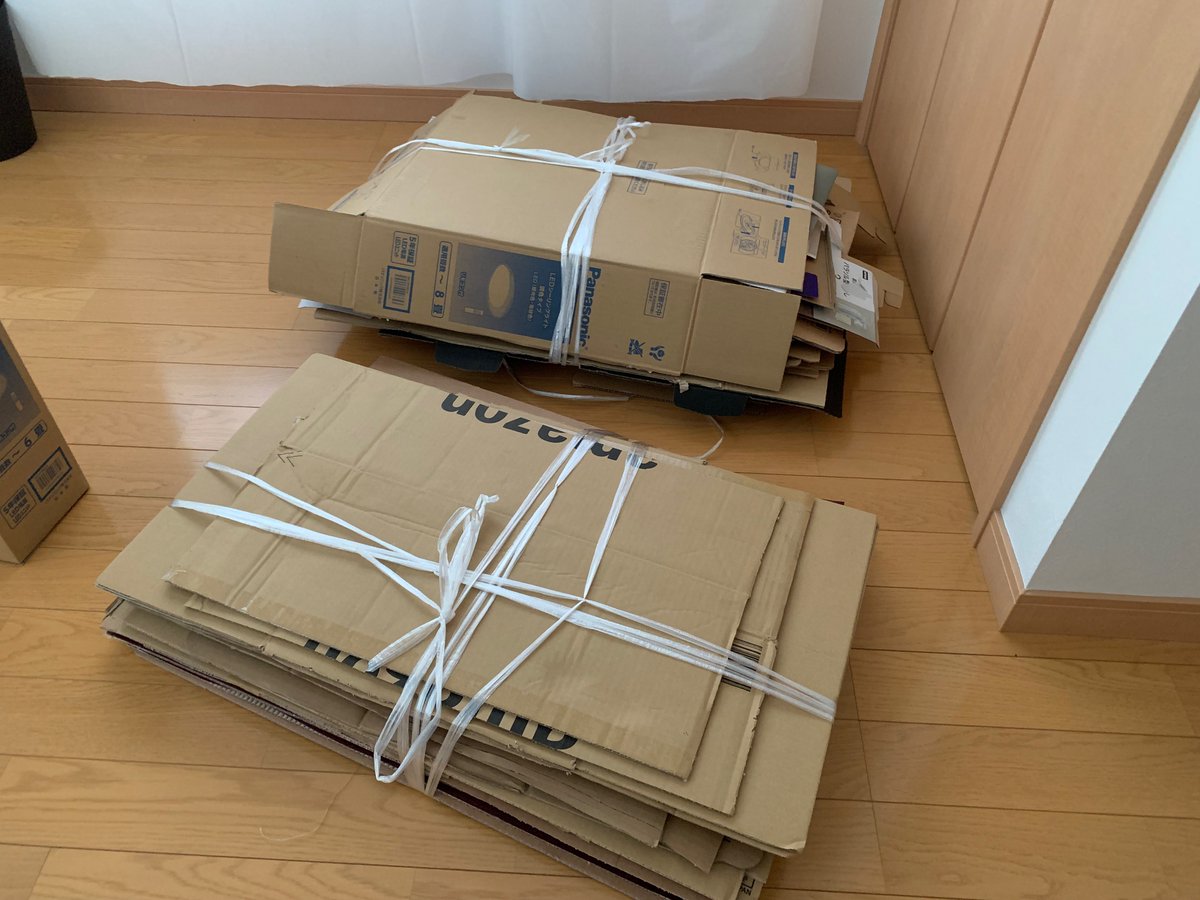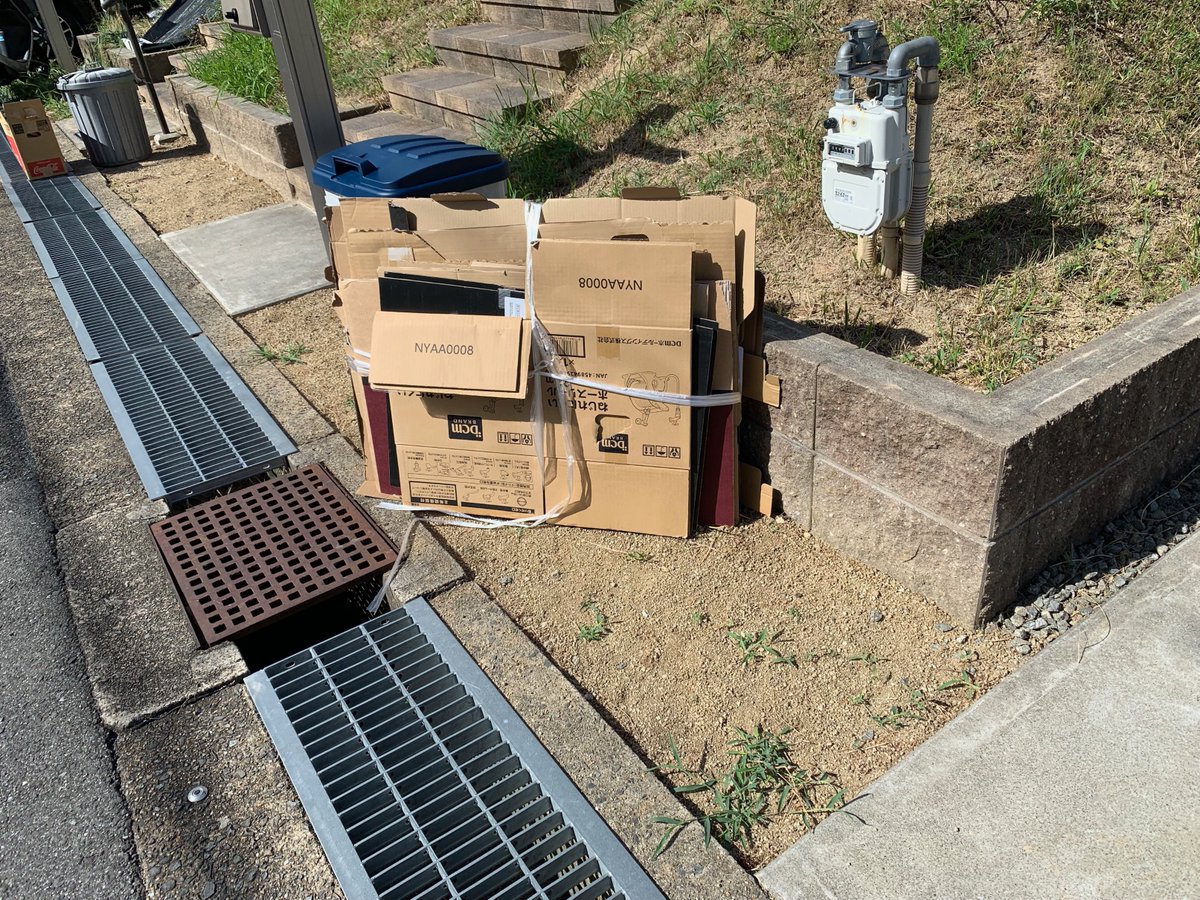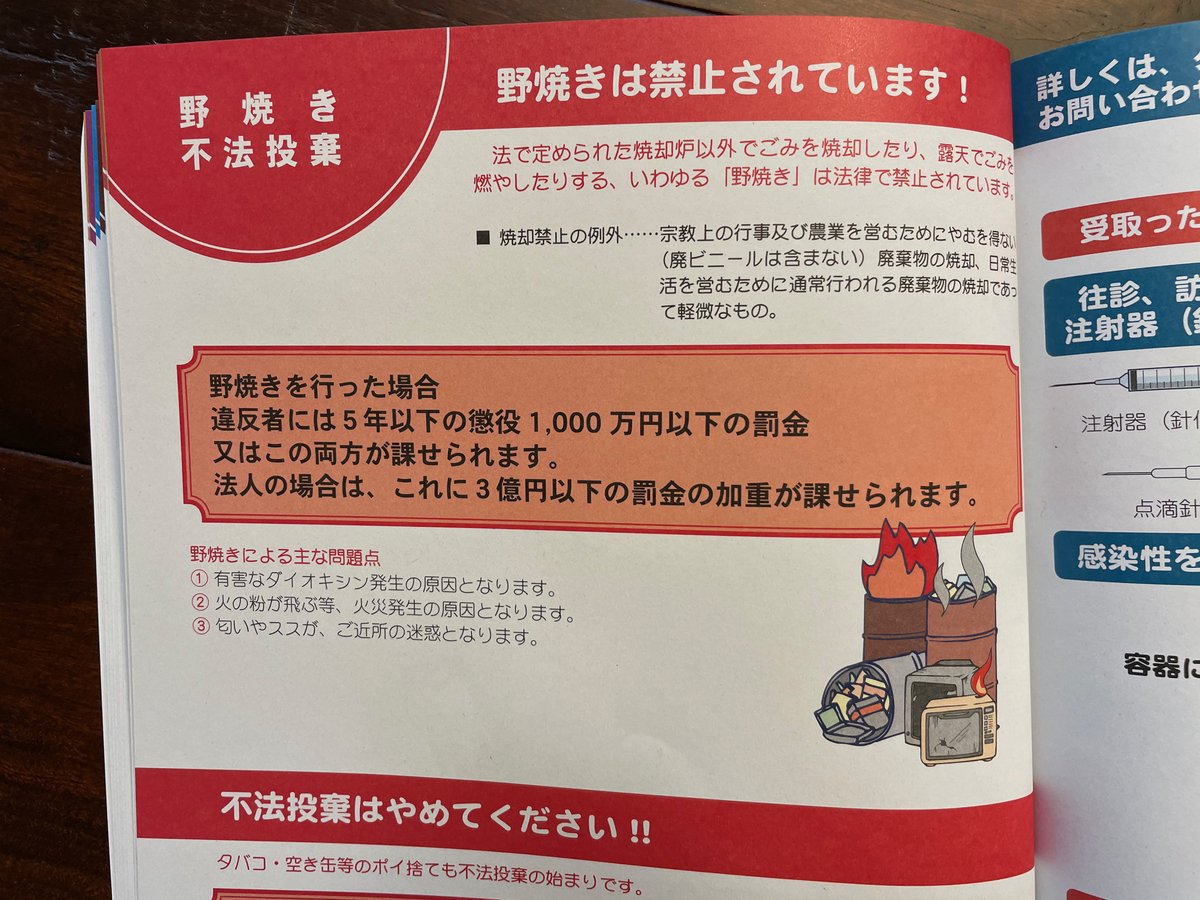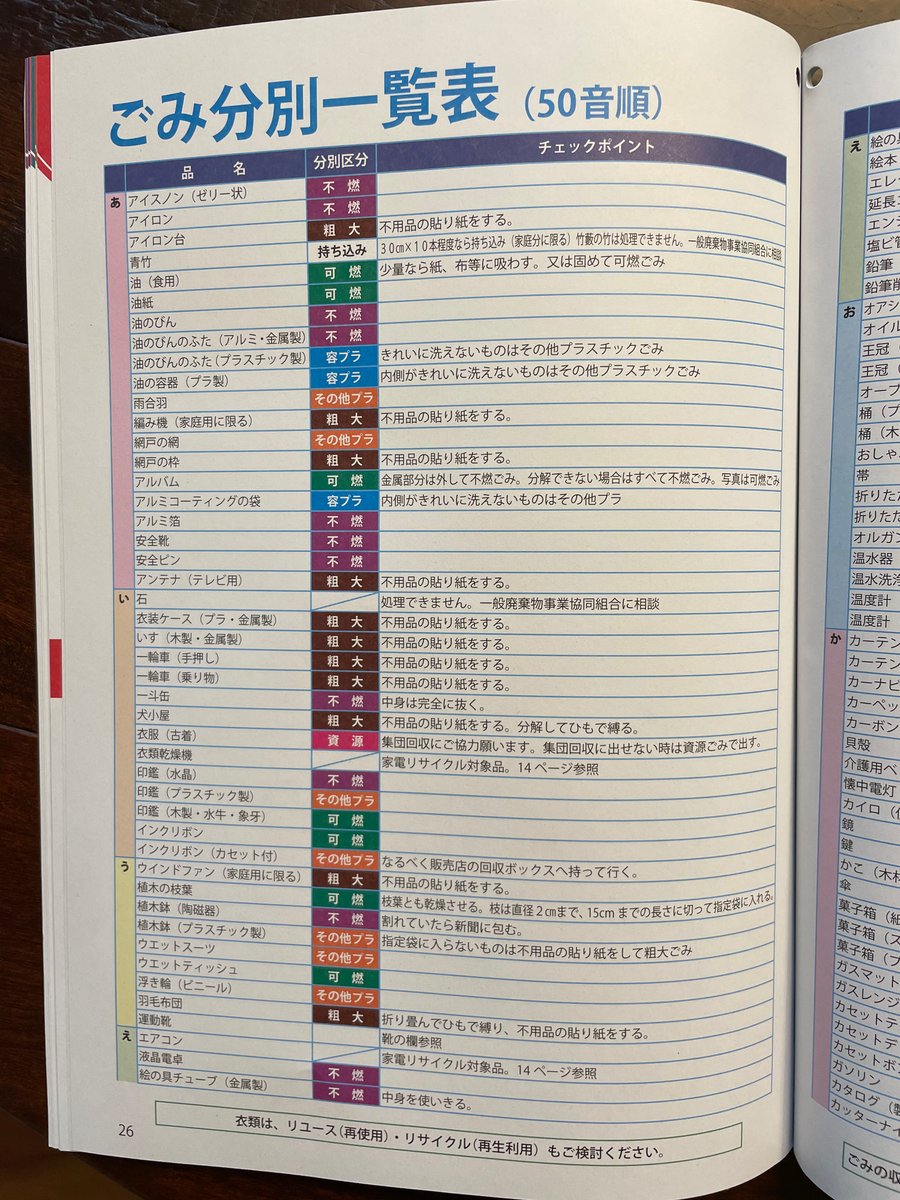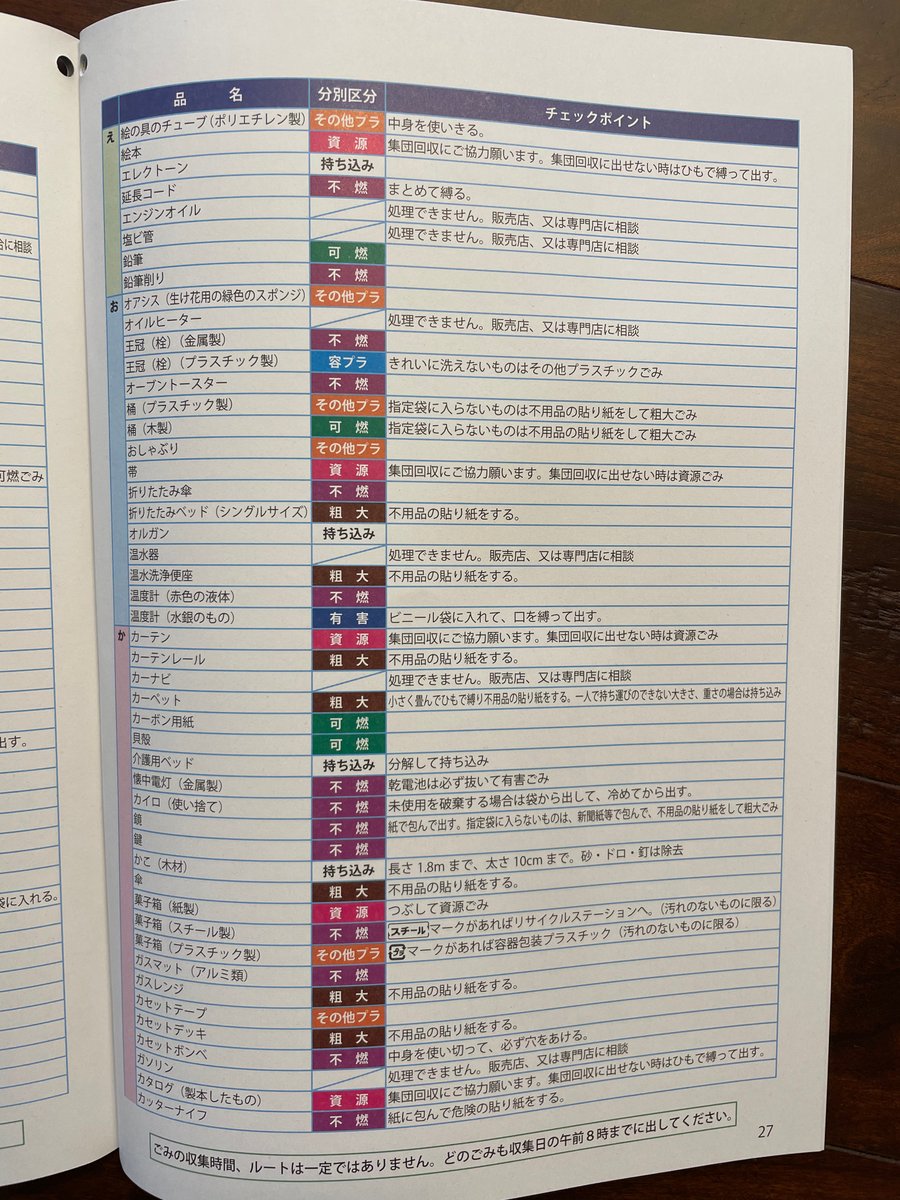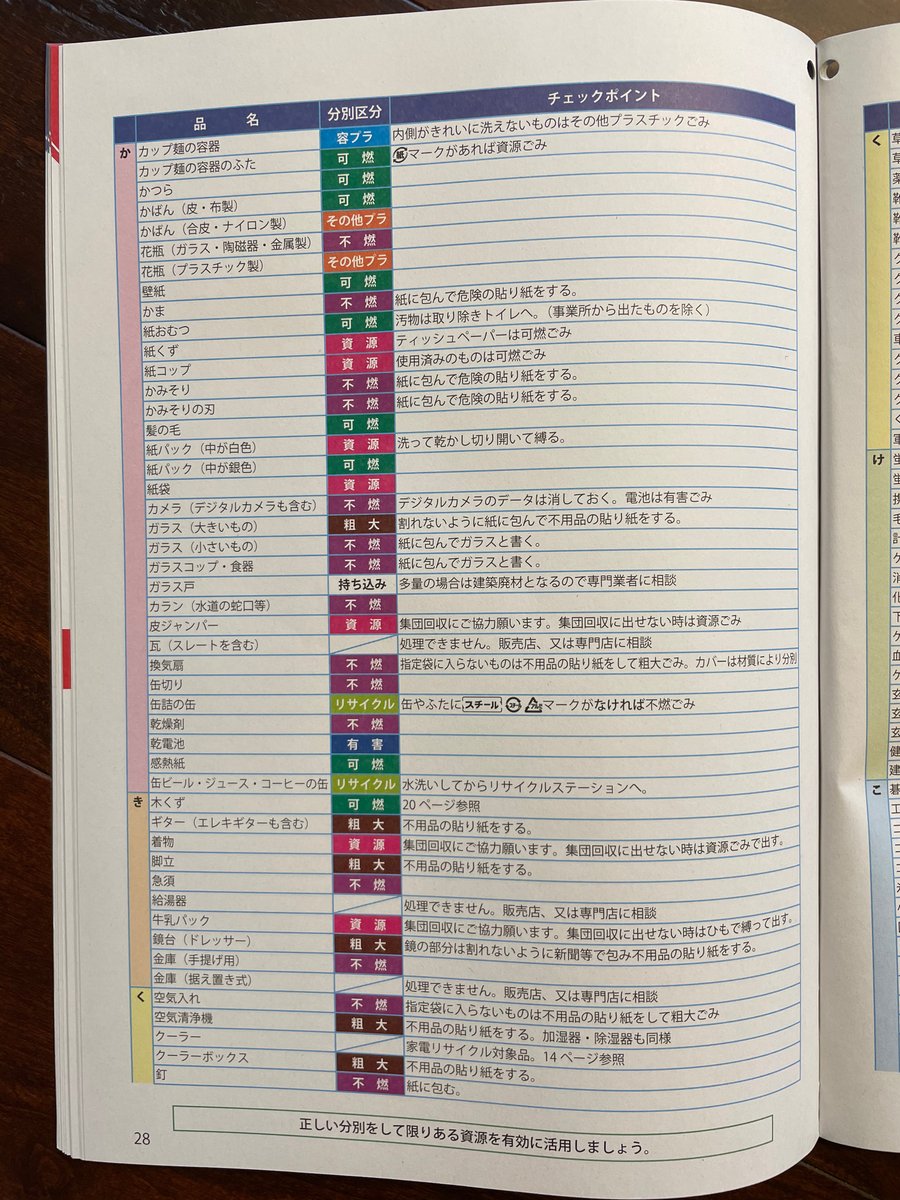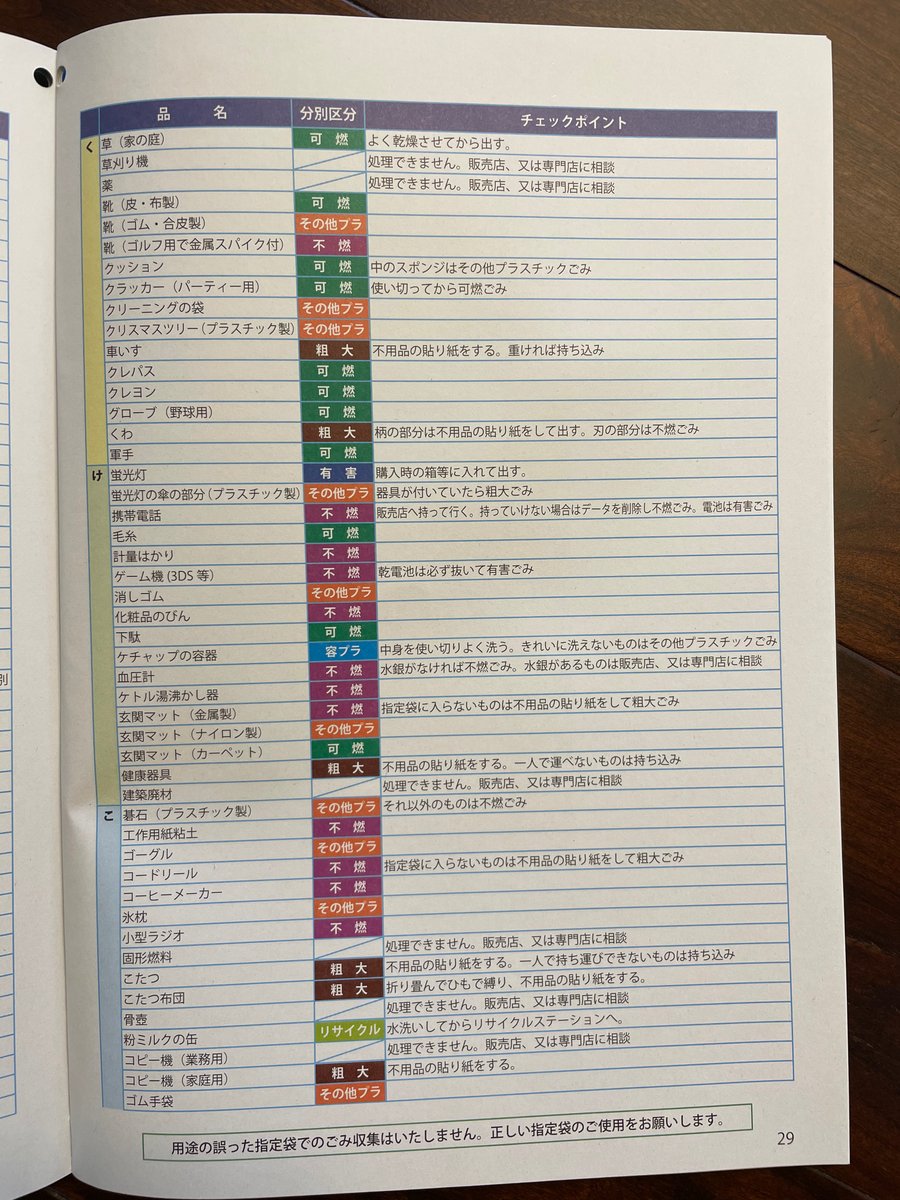One thing I& #39;ve been meaning to share about our year in Japan and one of the most fascinating aspects of its bureaucracy: garbage collection.
No, really! Garbage sorting is a massive part of daily life in Japan, and for numerous cultural, practical, and political reasons. Thread:
No, really! Garbage sorting is a massive part of daily life in Japan, and for numerous cultural, practical, and political reasons. Thread:
[Caveat to anyone interested in living in Japan: don& #39;t let this scare you off. We rented a detached single family house in a suburb of Osaka in Nara prefecture. I& #39;m told that our 30k pop. town really punched above its weight in strictness/conservativeness. It was expat hard mode]
When we registered as residents, we received the town& #39;s 37 page fully-illustrated book on garbage & recycling procedure. For a population of about 30,000 people. This scale of civil service is unfathomable to Americans: they have 3-story town hall with hundreds of career staff.
Let& #39;s dive into some of the norms and regulations of suburban homeowner garbage disposal. At a high level:
• The town collects 8 categories of refuse on different days
• Residents must carefully dismantle & clean garbage
• I spent ~6 hours a week planning my life around trash
• The town collects 8 categories of refuse on different days
• Residents must carefully dismantle & clean garbage
• I spent ~6 hours a week planning my life around trash
Okay, let& #39;s talk scheduling. To make life "easier", the manual came with a two-sided annual calendar insert (we were on the green schedule). Even if you don& #39;t know any Japanese, you can see that some categories are on a regular cadence, others monthly, a couple collect quarterly.
If that calendar seems stressful, fear not! There& #39;s an app for that.
Not only did the garbage app have push notifications the night before each type of garbage, but it also has a built-in reference manual, and even a quiz on which type of trash falls into which category!
Not only did the garbage app have push notifications the night before each type of garbage, but it also has a built-in reference manual, and even a quiz on which type of trash falls into which category!
I managed to move to the other side of the planet and fully furnish a house within 72 hours during a humid August amid 100ºF heat and no air conditioning. My reward? A Japanese textbook about garbage. Let& #39;s dig in.
First, a color-coded table of contents & some basic guidelines.
First, a color-coded table of contents & some basic guidelines.
The bread-and-butter of trash collection is 燃やすゴミ (easy-to-burn garbage). It would come every Tuesday and Friday and you could generally the heuristic of anything burnable (but not flammable!). Also note that if you put it out too early & crows get at it, cleanup is on you.
Burnable garbage has a 5-bag limit per collection and—in lieu of indirect taxes—must be put in designated garbage bags which were sold at local stores.
The local communist party candidate stopped by the house sometimes, running on a platform of halving the cost of these 30¢ bags
The local communist party candidate stopped by the house sometimes, running on a platform of halving the cost of these 30¢ bags
There were so many categories of garbage & recycling that I had 8 separate receptacles in the kitchen for all of them, and still wound up with two or three separate hiding spots for hard-to-get-rid-of stuff like dead batteries and light bulbs
The next most common trash category is 容器包装プラスチックごみ (container/packaging plastic garbage). Pickup is once a week and plastics must be separated, cleaned, and disposed of in transparent bags. If you can& #39;t fully clean out a container, it goes with "other" plastic
No, really, that& #39;s the next category: その他プラスチックごみ (other plastic garbage). Pickup is only once a month and requires higher-taxed orange bags. The 5 bag limit was a real stressor. At move-in, I had so much styrofoam I needed a one-time special dispensation from the city
So we talked about burnable trash, what about 燃やさないゴミ (non-burnable garbage)? Well, there& #39;s a day for that once a month, too. After month 3, I banned all aerosol can purchases because the rule requiring that they be drained & punctured before disposal was way too stressful
What if your garbage doesn& #39;t fit in a bag? For that you have 粗大ゴミ (oversized garbage). You can offload up to 3 items totaling 20kg two times a month. You also get to put your Japanese calligraphy skills to use, because each item needs to be tagged with 不用品 (unused item)
What if your trash doesn& #39;t fit any other categories? Hopefully it isn& #39;t 有害ゴミ (hazardous garbage), because that only comes 4-5 times per year and is capped at 5 separately bagged *items*. I was out of town for one of these, so went 6 months waiting to get rid of five batteries
And we haven& #39;t even gotten to recycling day! Japan is famous for its recycling (even if most of it is sold in bulk to Vietnam). Recycling day is every other Wednesday and will take some explaining.
On recycling day, the elected neighborhood captain manages a collection site for glass, steel, and aluminum. Because these must be dropped off between 7-8am, a house-spouse without a commute is essentially mandatory. I don& #39;t miss the walk of shame carting dozens of chuhai cans.
Also on recycling day is newspaper & cardboard pickup. All boxes must be broken down, cut to size, and then wrapped in plastic twine. If you think this would take a significant amount of time after buying a dozen appliances & pieces of furniture, you would be right!
And while most of these rules are enforced by cultural norms (I was warned that as a white guy, my neighbors would frequently nosily inspect my trash bags for me; not awkward at all), the penalties for screwing up are something fierce: up to 5-year prison terms, fines up to $3M.
This stuff isn& #39;t only stressful to foreigners. The back of the book contains a massive index of example items and which category they fall into. I& #39;d estimate 10% of conversations with our neighbors were related to categorizing garbage and they often didn& #39;t have any clue either
Spending a year as a 主夫 (house husband) in an affluent suburban community was an incredible life experience in its own right, but it seriously rewired my capitalist programming. Every time we bought something I started reflexively considering how I was going to get rid of it.
This may add some context to the trope of foreigners in Japan being indignant when neighbors & landlords bristle that "they won& #39;t know how to separate trash". It& #39;s not entirely xenophobic paternalism! It& #39;s hugely disruptive when somebody doesn& #39;t understand and follow the rules!
If you live in Japan and don& #39;t know Japanese, trash collection is a good example of one way foreigner ignorance can some fall on some poor bureaucrat, who will quietly absorb the administrative burden of filing the paperwork when your trash is wrong every week for years on end.

 Read on Twitter
Read on Twitter![[Caveat to anyone interested in living in Japan: don& #39;t let this scare you off. We rented a detached single family house in a suburb of Osaka in Nara prefecture. I& #39;m told that our 30k pop. town really punched above its weight in strictness/conservativeness. It was expat hard mode] [Caveat to anyone interested in living in Japan: don& #39;t let this scare you off. We rented a detached single family house in a suburb of Osaka in Nara prefecture. I& #39;m told that our 30k pop. town really punched above its weight in strictness/conservativeness. It was expat hard mode]](https://pbs.twimg.com/media/ElLs8OFXEAEWlry.jpg)
